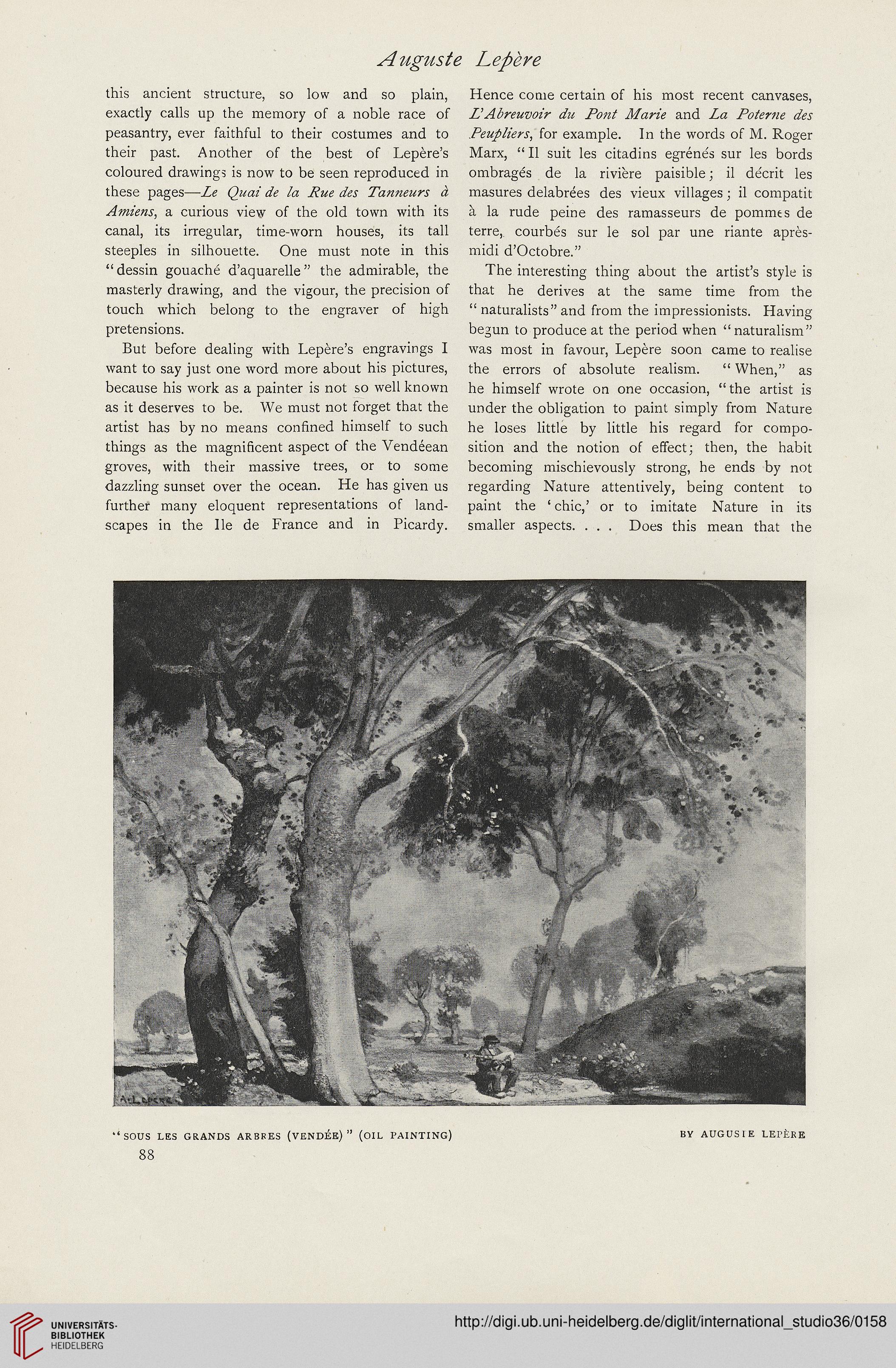this a.ncient structure, so iow and so plain,
exactly caiis up the memory of a nobie race of
peasantry, ever faithfui to their costumes and to
their past. Another of the best of Lepere's
coioured drawings is now to be seen reproduced in
these pages—Zc <2^^/ /a: Yh777zgM7-r
^7777'^w, a curious view of the old town with its
canai, its irreguiar, time-worn houses, its taii
steeples in siihouette. One must note in this
"dessin gouache d'aquarelie" the admirabie, the
masterly drawing, and the vigour, the precision of
touch which beiong to the engraver of high
pretensions.
But before dealing with Lepere's engravings I
want to say just one word more about his pictures,
because his work as a painter is not so weh known
as it deserves to be. We must not forget that the
artist has by no means conhned himseif to such
things as the magnihcent aspect of the Vendeean
groves, with their massive trees, or to some
dazziing sunset over the ocean. He has given us
further many eioquent representations of land-
scapes in the Iie de France and in Picardy.
Hence come certain of his most recent canvases,
^ ^<777/ and L<z
P^^&7-r, for exampie. In the words of M. Roger
Marx, " Ii suit les citadins egrenes sur ies bords
ombrages de 1a riviere paisible; ii decrit ies
masures delabrees des vieux villages; il compatit
h 1a rude peine des ramasseurs de pommts de
terre, courbes sur le sol par une riante apres-
midi d'Octobre."
The interesting thing about the artist's style is
that he derives at the same time from the
" naturalists" and from the impressionists. Having
begun to produceat the period when "naturalism"
was most in favour, Lepere soon came to realise
the errors of absolute realism. " When," as
he himself wrote on one occasion, " the artist is
under the obligation to paint simply from Nature
he loses little by little his regard for compo-
sition and the notion of effect; then, the habit
becoming mischievously strong, he ends by not
regarding Nature attentively, being content to
paint the ' chic,' or to imitate Nature in its
smaller aspects. . . . Does this mean that the
"sous LES GRANDS ARBRES (VENDEE)" (otL FAtNTtNG)
88
BY AUGUStK LEPERE




